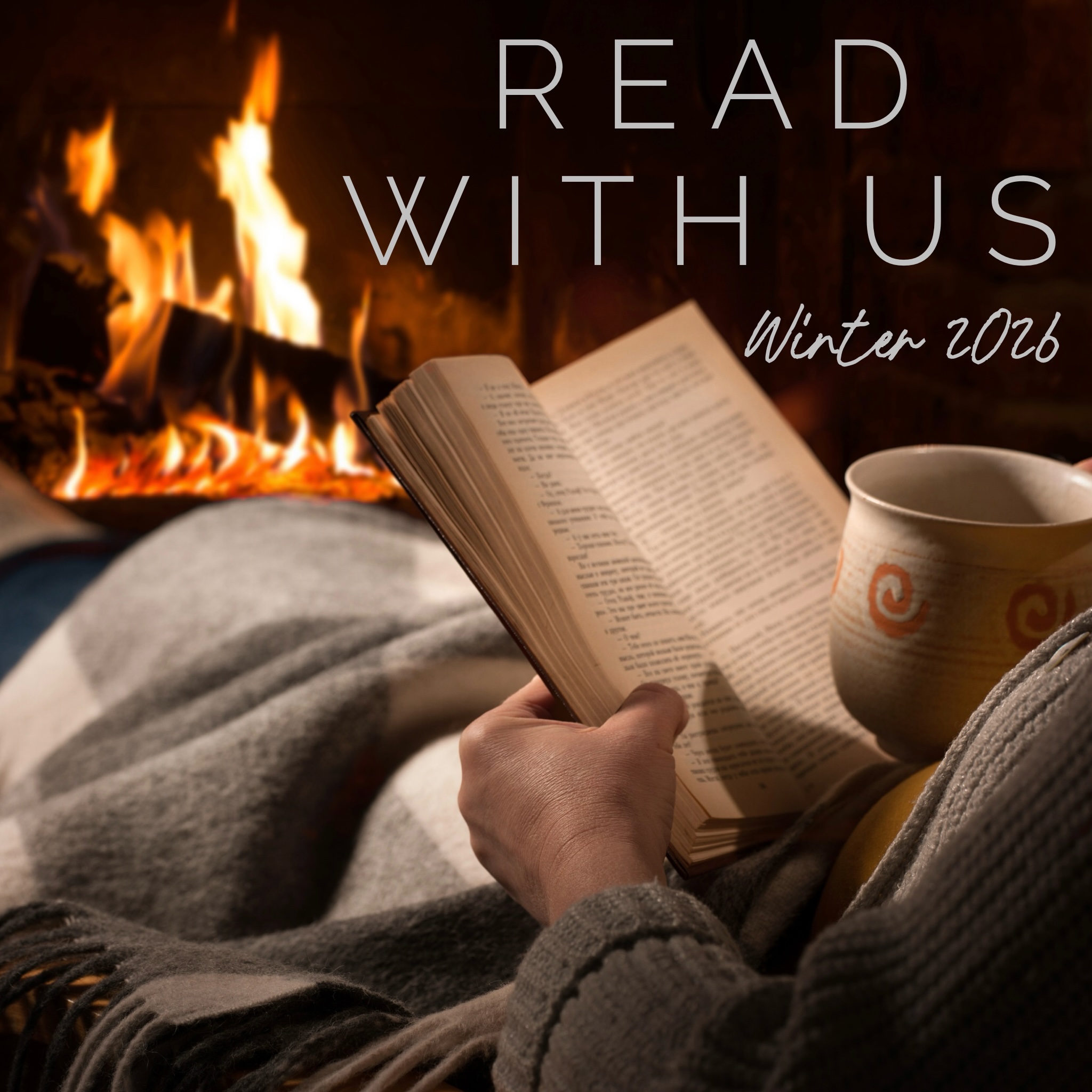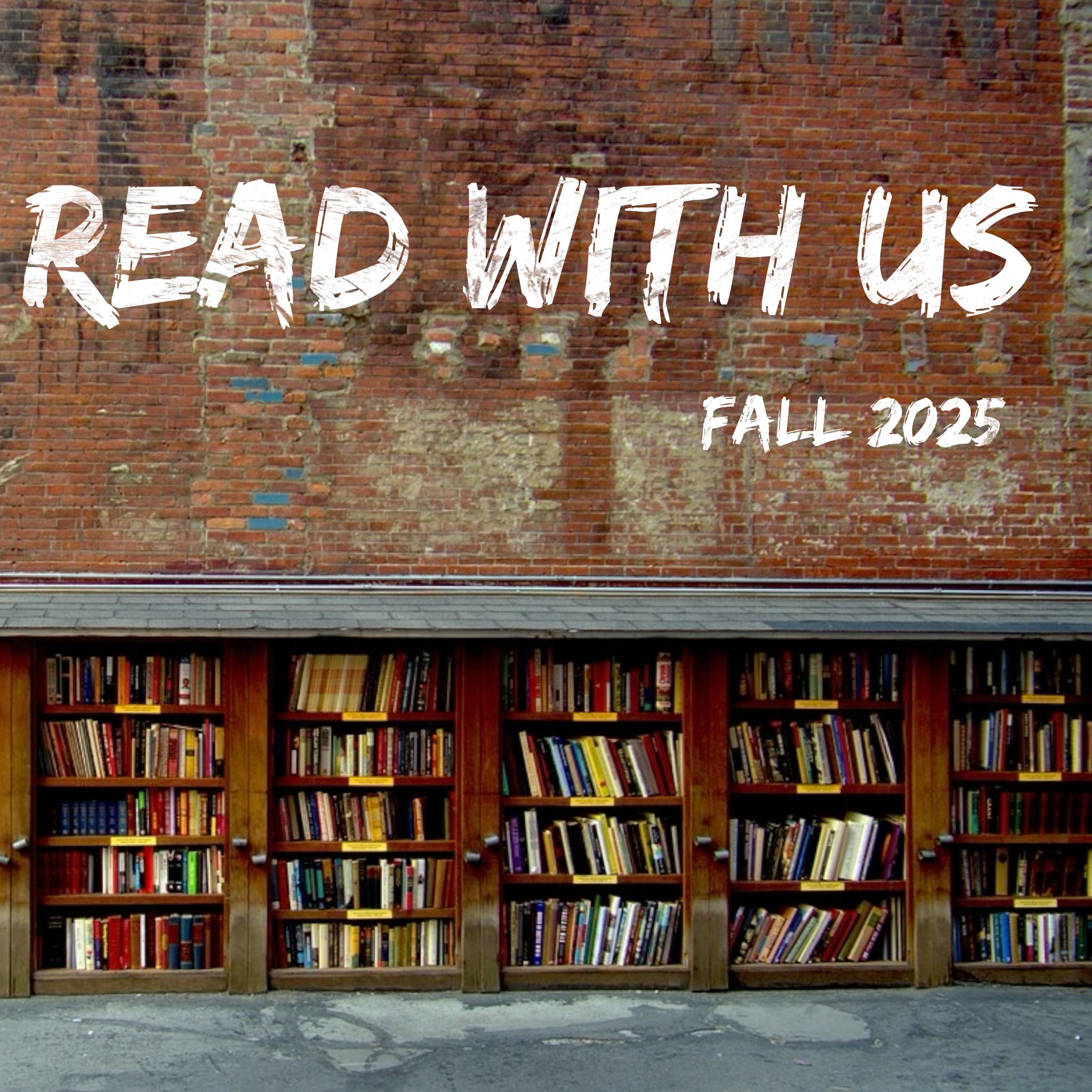
Welcome to . . . Read With Us Discussion Day
Bonny and Carole and I are posting discussion question(s) today for our latest RWU book . . . Trespasses by Louise Kennedy. Join the discussion (which you’re welcome do even if you didn’t read the book) by commenting on our blogs. I’ll be answering your posts within the comment section for this discussion — and you can comment on other people’s comments, as well. Y’know . . . like in a real book group.
Let’s begin!

First . . . I’d really like to know what you thought of the book. What did you like best (or least) about Trespasses? (And if you’ve already answered this question over on Carole’s blog today, feel free to just ignore it here.)
Second . . . The main character, Cushla, crosses boundaries into areas that were clearly marked “off limits” over the course of the novel (you might say she . . . “trespasses”). Many of these boundaries involve her relationship with Michael, which crosses not only religious boundaries but also age, class, and education as well. How do these boundaries affect the balance of power in the affair and its ultimate fate? What does the novel seem to be saying about the relationship between personal relationships and their broader social and political context?
Similarly, Cushla’s relationship with with Davy’s family crosses different boundaries. What did you think of her attempts to help Davy’s family? What social and class tensions enter into this relationship as well, and how do they affect it?
I can’t wait to hear what you think!
==
Don’t forget: We’ll be discussing the book on Zoom tonight – 7:00 pm Eastern Time. There’s still time for you to join us! Just let me know of your interest either with a comment or by sending me an email (see sidebar, above) — and I’ll send a Zoom invitation.
PS – If you are planning to join us on the Zoom, but haven’t received an invitation from me (I sent them yesterday), please let me know so I can get the Zoom link to you today.





I enjoyed this book a lot. As Sarah commented on Carole’s blog, the book did a good job of showing how rough or fraught the times were and how just about anything and everything could make you look disloyal. I thought she should have stayed out of Davy’s family’s affairs/life. I get that she was concerned about him, but I don’t think it was appropriate that she became so involved…and, if she had not, it would have been a different story, so there is that!
I listened to an interview Louise Kennedy did about the book . . . and she basically wrote it all from her own life and memory, which is just amazing and fascinating to me. She did little (or no) research for the book — because she lived it. (Although it wasn’t autobiographical – she didn’t have an affair with a Michael-character in real life – but her family did own a bar, and it was targeted in a bomb attack.) Although her helping Davy’s family was super risky, I think it hearkens back to what life had been before the Troubles — where neighbors helped neighbors. What a horrible choice to have to make — to get involved or not.
I also enjoyed the book and look forward to reading more of Louise Kennedy’s writing. With the many trespasses and boundaries crossed, I couldn’t see any way for this book to end except unhappily. The religious boundaries seemed to be the most important, and I agree with Vera that things might have ended differently if Cushla hadn’t gotten so involved with Davy’s family. Davy’s brother might have heard about Michael from others but once Cushla began caring about Davy and his family, the action was like a roller coaster approaching the top of a hill and there was no stopping it.
From other books I’ve read about The Troubles, including Say Nothing by Patrick Radden Keefe, I think Davy’s brother likely would have gotten involved in some way in or another anyway — because it was so hard not to get involved. (Of course, it would have likely looked so much different than it did, situation-wise.) It was so isolating! Who could you trust??? What a horrible situation all around.
I agree with Bonny’s thoughts on the roller coaster… it was an inevitable outcome, but I thought that Cushla’s caring about Davy was one redeeming factor in this book. I think Cushla would have been smarter to stay involved with one, and never start the other.
All that said, I did not much care for the story (sorry!)
First, there is nothing to “sorry” here. Books do not have universal appeal. What one reader likes, another does not. And that makes the world a much more interesting place to be!
Second, i agree with you — I think Cushla’s caring about Davy and his family was natural (and redeeming). From what I’ve read, The Troubles created firm boundaries (battle lines) in places where there had previously been neighborly caring and support networks. I’m sure it would have been very hard for Cushla to turn away. As for her affair with Michael? Ill-advised, certainly. But she was so isolated . . .
I loved this book. It inspired curiosity into a piece of history I know very little bit about. More than that, though, I continuously admired Kennedy’s talent, at the sentence level, for the myriad nuanced relationships she depicted. I’d even go as far as to say she did it masterfully; it’s what made it hard for me to put this book down before bed. So glad I read along with you all; so sorry I’ll miss the discussion tonight. Enjoy each other!!
I’m sorry you’ll miss the discussion tonight, too, Carolyn. I felt much like you did about this book. I felt it was such an intimate look at “real life in The Troubles” for a very isolated young woman. (Have you read Milkman by Anna Burns? I have a feeling you might like that one, too.)
I enjoyed the book a lot, and I think the message that I took away from it is that so many of the boundaries that she crosses are really arbitrary, when you come right down to it. Why can’t someone fall in love with a person of a different faith? Why can’t we help others who clearly need it? While there are certain lines that perhaps shouldn’t be crossed, so much of the damage of the Troubles was caused because people couldn’t see gray areas. Perhaps that’s being a bit simplistic on my part, but I think that can be the root cause of so many conflicts.
Looking forward to tonight!
Yep. I completely agree with you. The Troubles . . . set up distinct boundaries (battle lines) in places and situations where there were none before. (At least in terms of neighborly support; I think the interfaith relationship thing was probably trickier. . . ) I’m looking forward to our discussion this evening.
Right from the beginning I could almost feel Cushla’s sense of isolation and lonliness that led her to cross boundaries in her relationships with Michael and with Davy. I think she reached out to Davy and his family from a sincere desire to help and was blind to the dangers that could result from her actions. I think her lonliness was a major factor in her relationship with Michael and, again, she seemed blind to the consequences. I enjoyed the book, but knew from the beginning that things would not end well and my heart broke for Cushla.
That is exactly how I felt about the book, Debbie. I think, also, Trespasses is set at the beginning of The Troubles, when people were still trying to pick their way along those new (and suddenly dangerous) boundaries. I can’t imagine being a young teacher and NOT wanting to help and support one of your students when the family is in crisis! I also can’t imagine how isolating life was for Cushla. It was a heartbreaking story.
It’s pretty doubtful that I’ll be able to join you this evening. Looking forward to the recaps!
I think Cushla as a teacher really wanted to help her student and their family and really didn’t think it was wrong as in her mind she just wanted to help. I didn’t get the attraction of Micheal for her but it was most likely she was lonely and he showed up and payed attention to her.